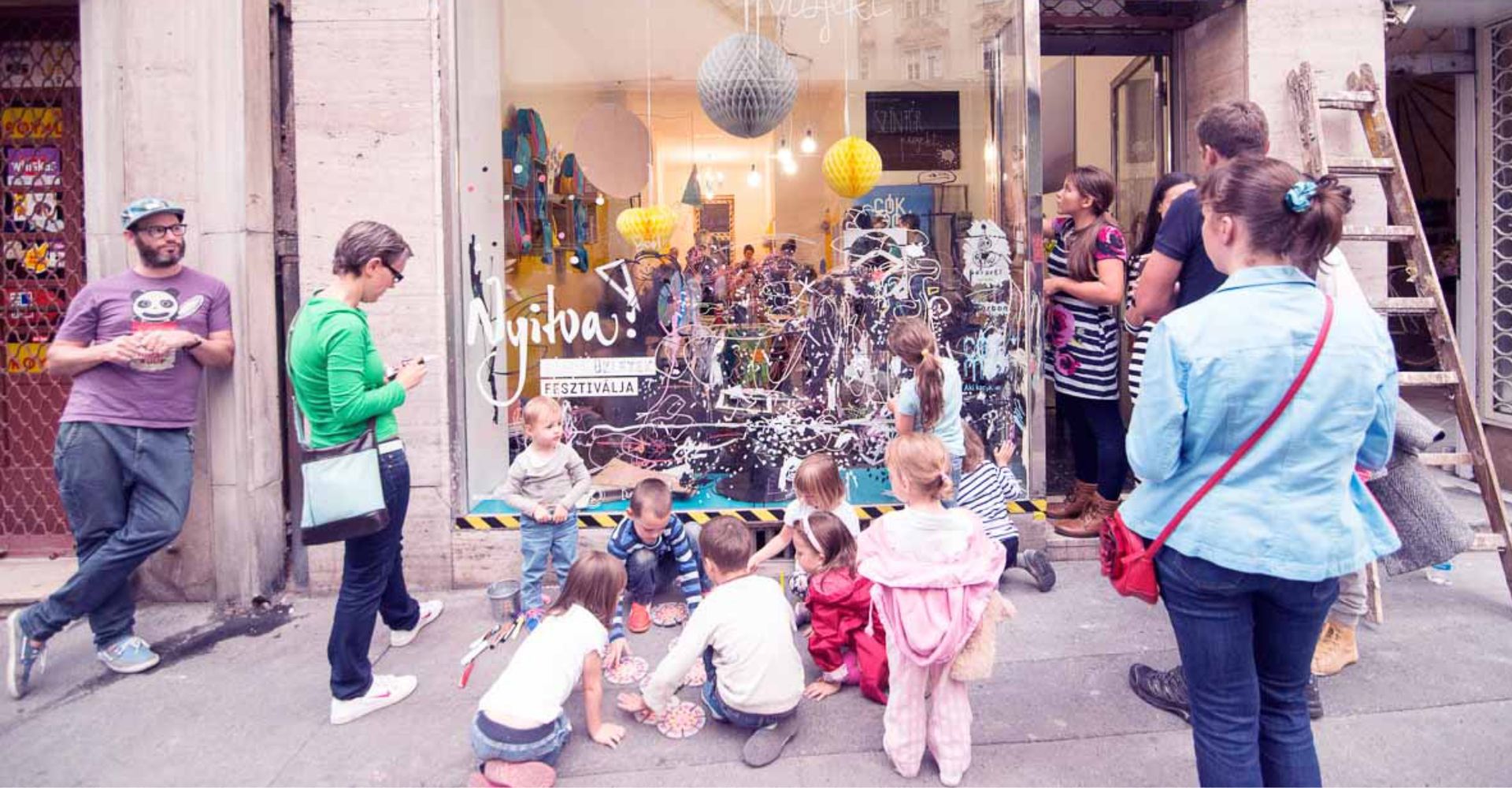Even before the pandemic, the overall image and dynamism of Budapest were already damaged by a plethora of ghost businesses, and the recent period has only exacerbated the situation. Underutilized properties are degrading the quality of the area, they mean a loss for landlords, while on the other side, many start-up ideas are failing to take off due to unrealistic rental prices. Nyitva! (Open!) Festival aims to bridge this gap, creating value for the city, entrepreneurs, and landlords alike.
Previously two Nyitva! Festivals have been organized by the KÉK—Contemporary Architecture Centre, in the framework of its Lakatlan program, in 2014 and 2016. Open! creates a platform allowing tenants to temporarily move into vacant shops for a month and try out their entrepreneurial ideas. This November, after a long lay-off, the event series returns, this time with a specific focus on Erzsébetváros. We asked Emőke Böjthe and Tímea Szőke, the festival’s project leaders.
Nyitva! x Erzsébetváros will welcome visitors between 5-30 November.
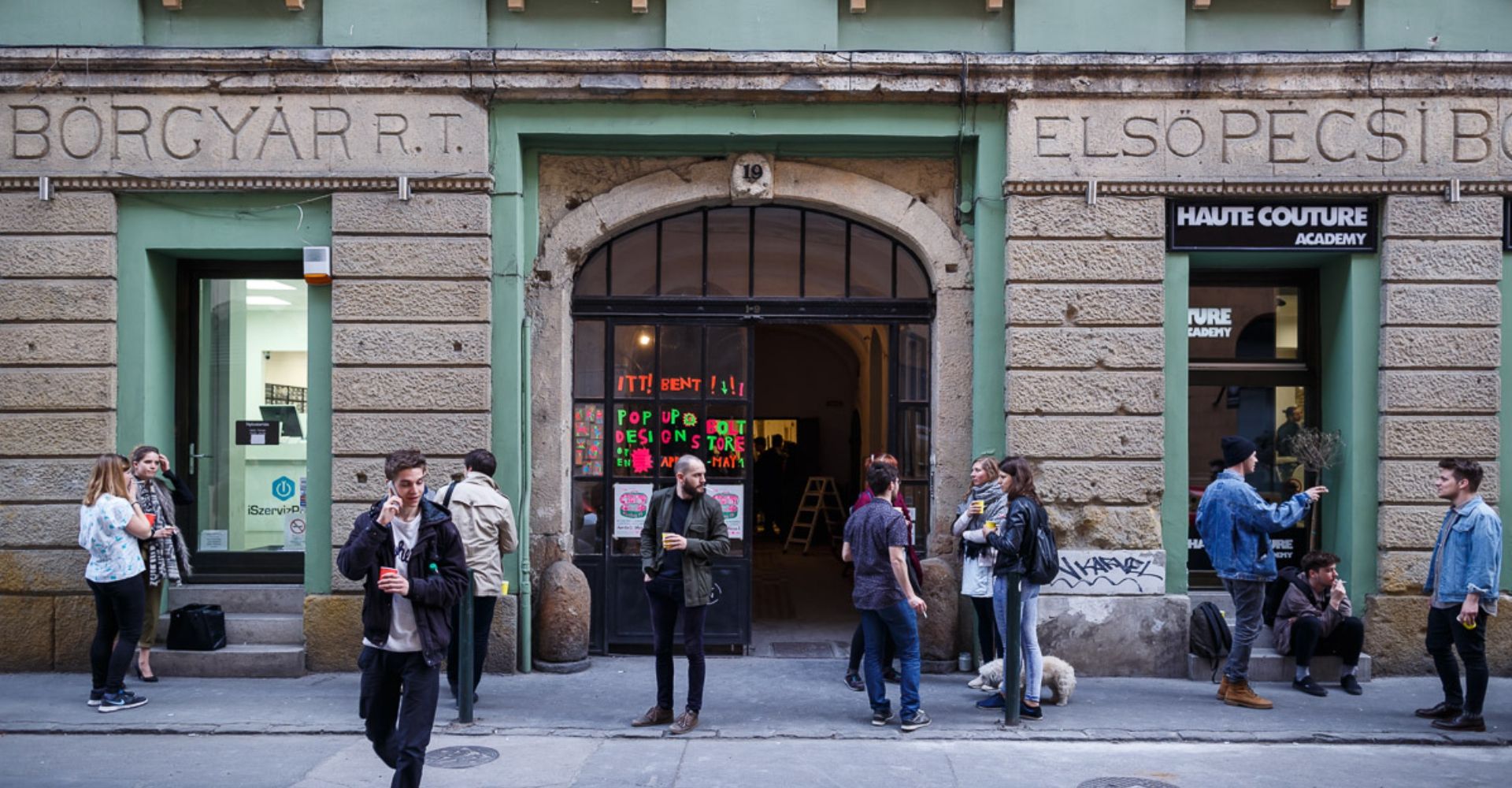
What will be different about this year’s Nyitva! ? How will the initiative be restructured in the context of Erzsébetváros?
T. Sz.: In previous years, the two Nyitva! Festivals were organized as part of a larger EU project. The aim was to bypass the bureaucratic real estate system in Budapest and come up with a concept for the use of vacant business premises to help start-ups and to make use of under-utilized shops. After the project ran out, we spent a long time looking for ways to continue. When you are dealing with a whole city, you have to look at a much bigger and broader set of problems, and it is particularly difficult because the property regulations often differ from one district to another, making it difficult to take a unified approach to the arising problems. Hence the idea that this time it might be worth focusing on a narrower area. We chose Erzsébetváros because there is much talk about local problems there: hundreds of vacant shops, the party district, and the conflict between Outer and Inner Erzsébetváros. With the Nyitva! x Erzsébetváros, we are trying to find solutions to these problems in cooperation with the municipality.

Until the beginning of July, you had carried out a number of surveys in the district. How did it go, and what were the results?
T. Sz.: The idea was not to tell people what services should move into vacant premises but to ask the locals what they need. This is also a reflection of the general problem that people often feel they have no say in what happens in their neighborhood. This is particularly the case in Elizabeth Town when it comes to the party district and tourism. In recent years, former services have been replaced by those that cater to the needs of tourists. Many of the necessities of everyday life are not available or are now unaffordable for residents.
E. B.: The survey was carried out in three phases: an online questionnaire was compiled based on a preliminary interview, and then a mental map was drawn up with a focus group. Here we circled around the main issues and then considered potential solutions. The application and the festival were a response to the needs that had emerged.
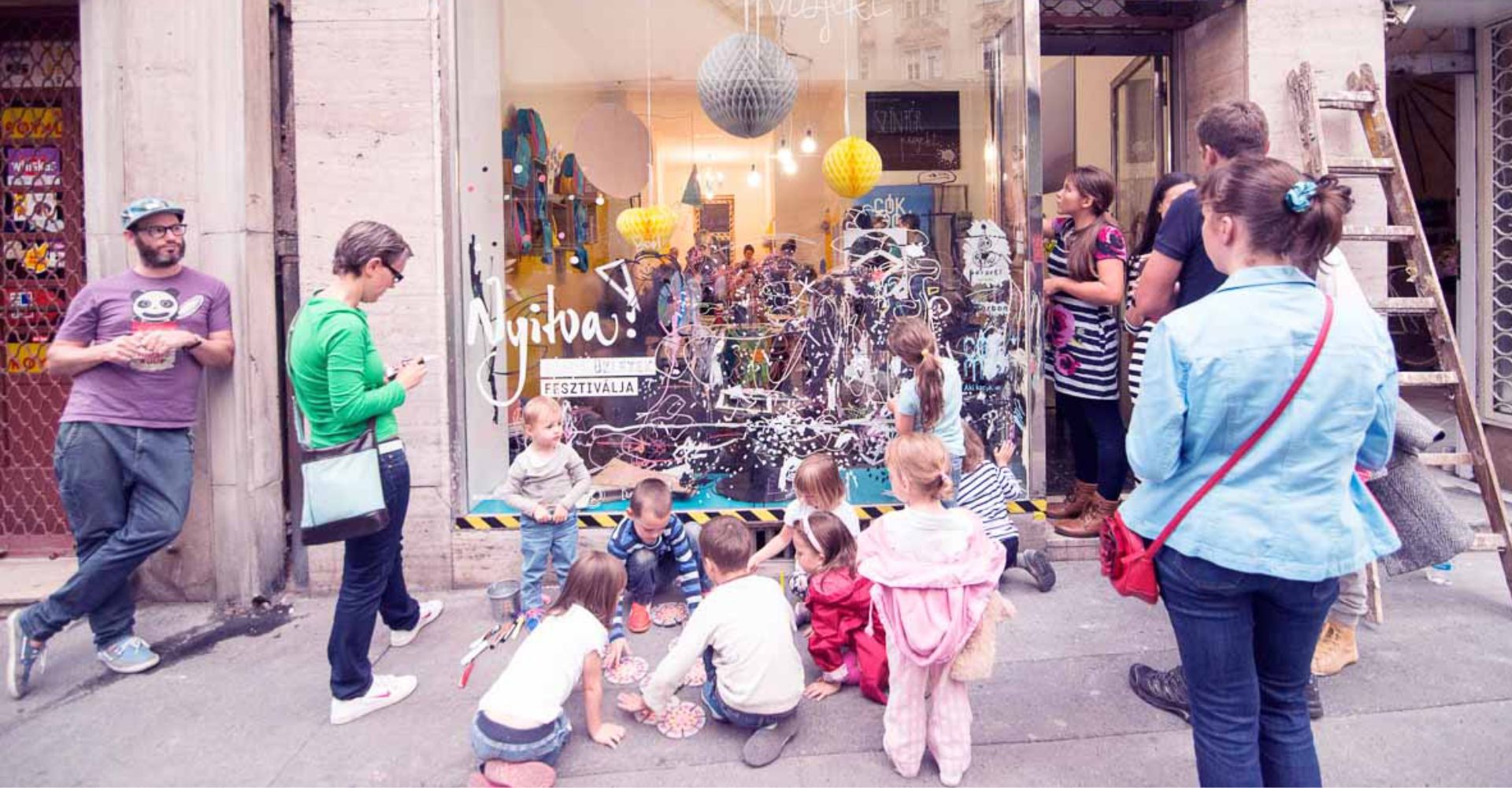
Can you give some specific examples of problems and needs that you encountered during your survey?
E. B.: Among the many problems, we have tried to focus on those to which the project can provide some answers. One of them that we can directly address is the lack of quality services, family and cultural programs. Of course, the research also revealed problems that the Nyitva! Festival cannot answer. We are well aware of this; that is why we are handing the survey over to the municipality, who will be able to take further action in the long term.
T. Sz.: We also created a service matrix, where we assessed the needs and the existing services. It showed that people think that craftsmen such as shoemakers and seamstresses have disappeared from the area. However, the service matrix indicates that they still exist in the district but have been forgotten due to lack of demand.
E. B.: We want to reach out to them, not only to give opportunities to new businesses but also to involve existing ones. With the upcoming programs in November, we want to raise awareness of these businesses and services. The Nyitva! Festival will help put on the map services and businesses that may previously have been known only to the local community.
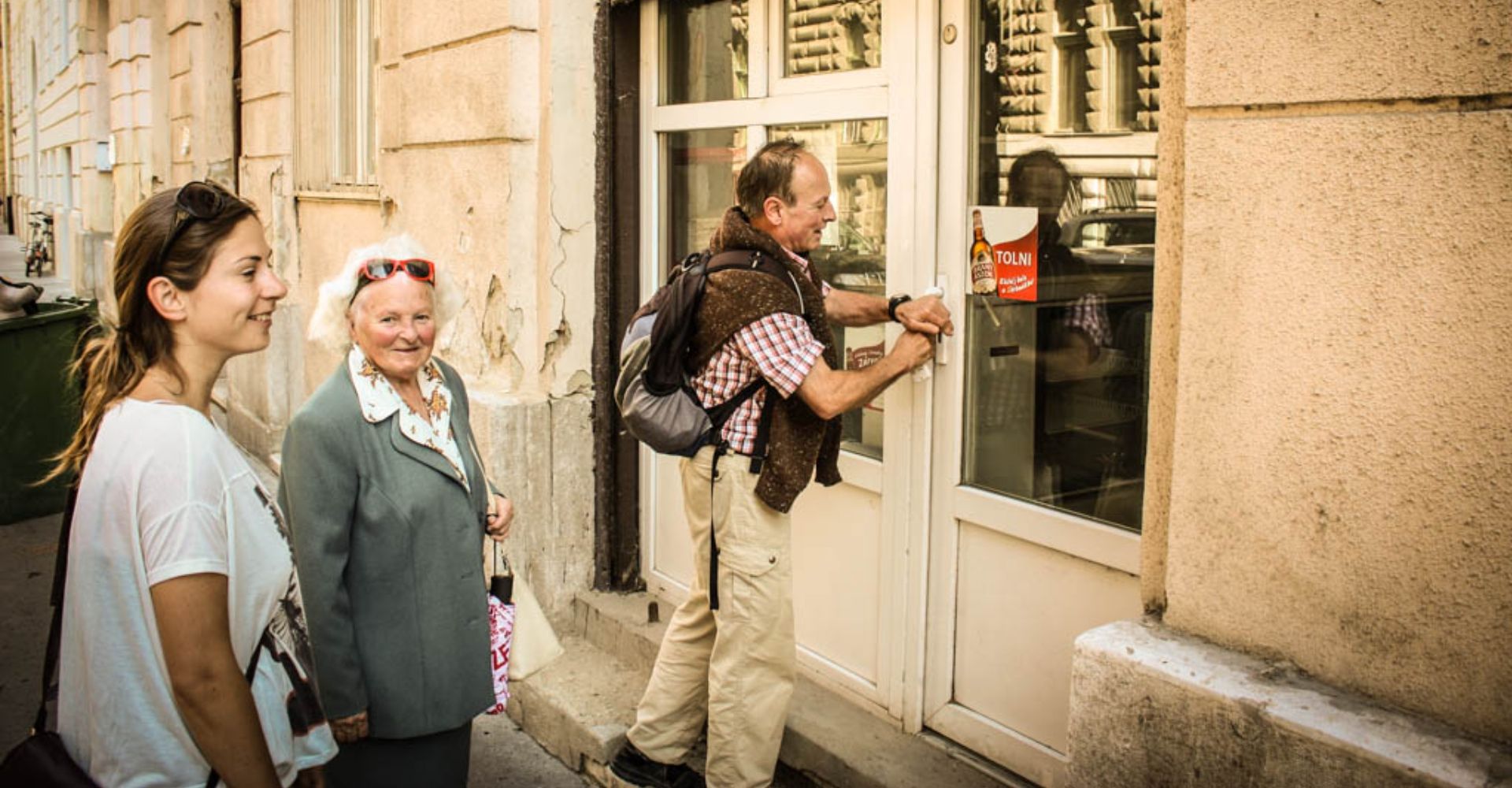
How do you approach business owners and convince them that it is worth their while to participate?
T. Sz.: It’s no secret that this is one of the biggest challenges of the project, finding and convincing them that this will increase the value of their property, only not in the short but in the long term. Although businesses don’t pay rent during the trial month, they take over the utility bills, clean up the space, breathe life into it, and hopefully, a long-term contract can be signed afterward. A good example of this is Naspolya Nassolda, who started their business at the Nyitva! Festival and have been running successfully ever since.
E. B.: Fifty entries were received this year, but we found much fewer premises than that. There is a big gap between the two sides. So the jury is really looking for the ideas that are the ideal choices for the district. To do this, we have set up a list of criteria based on the survey.
T. Sz.: Of course, the reason we found so few vacant properties is not because there are so few of them, but because the market works completely differently and so the attitude of the owners. In the end, we were scouting by cycling around Erzsébetváros and taking photos of the shops for rent, with Emőke calling one after the other. There is no way to approach them more directly than that; what we need is a change of attitude.
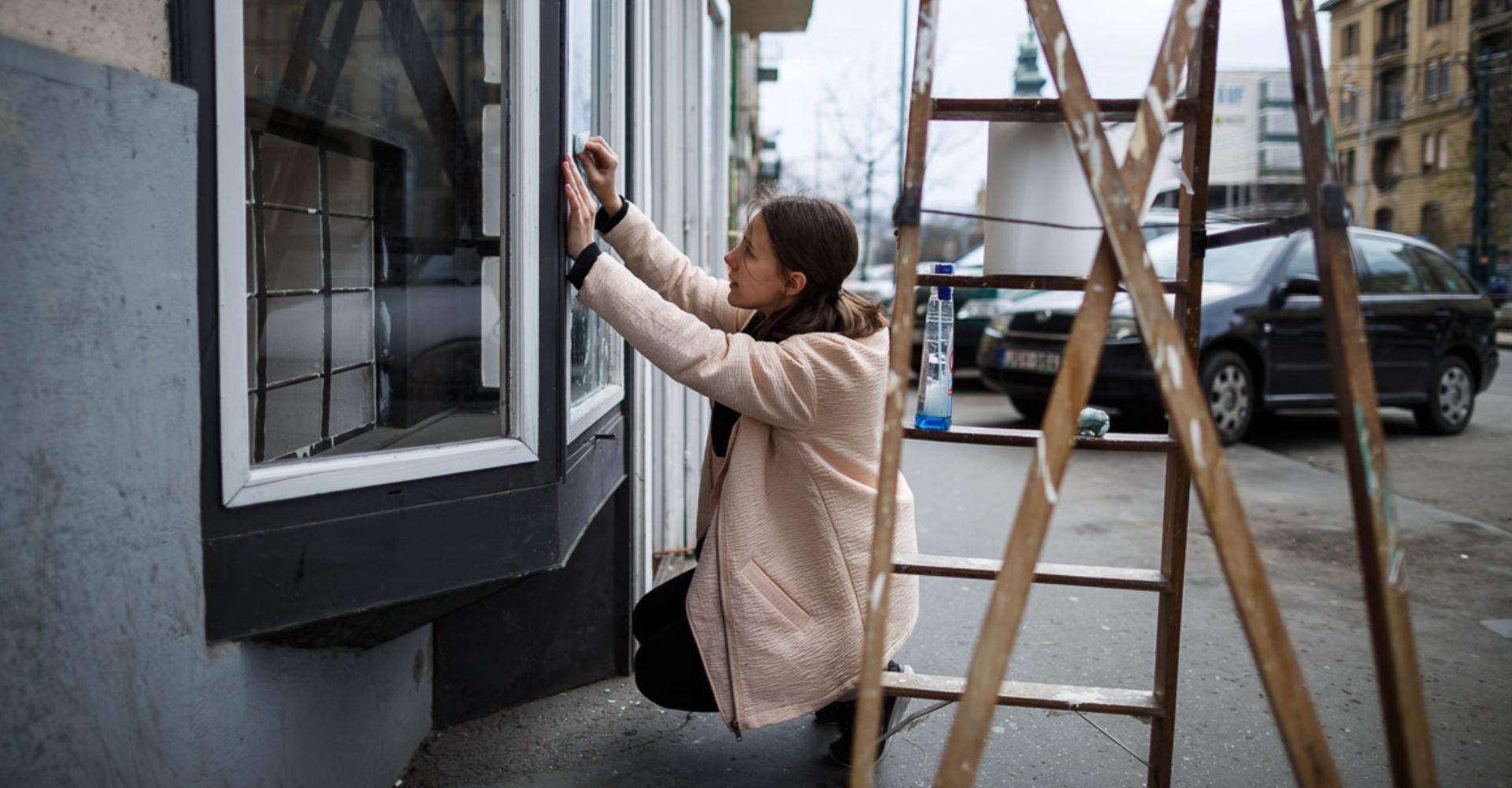
What were the counterarguments of the owners?
E. B.: A lot of people cited the political situation of the district, others to the fact that they did not dare to give up their place for a month and argued that it was a loss of income for them. Whereas it’s a loss-making business anyway if it’s not rented out. This way, at least the rent is covered, there is no amortization, and a long-term lease can be signed.
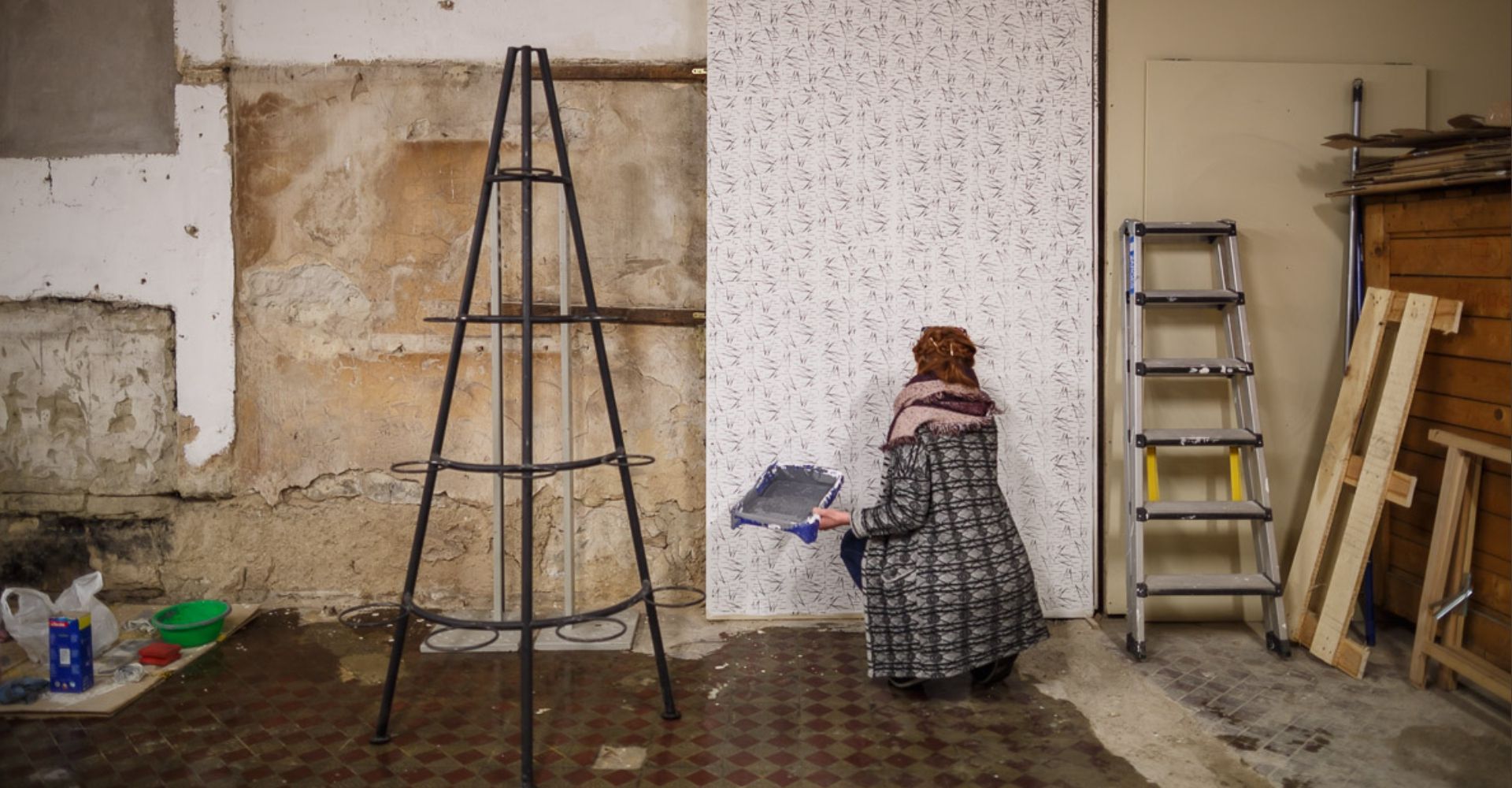
This year, you also offer a mentoring program for selected businesses. What is it about?
E. B.: This will be a three-event project where we want to provide professional support to help businesses get started. There will be presentations and workshops on different topics such as legal issues, branding and sustainability.
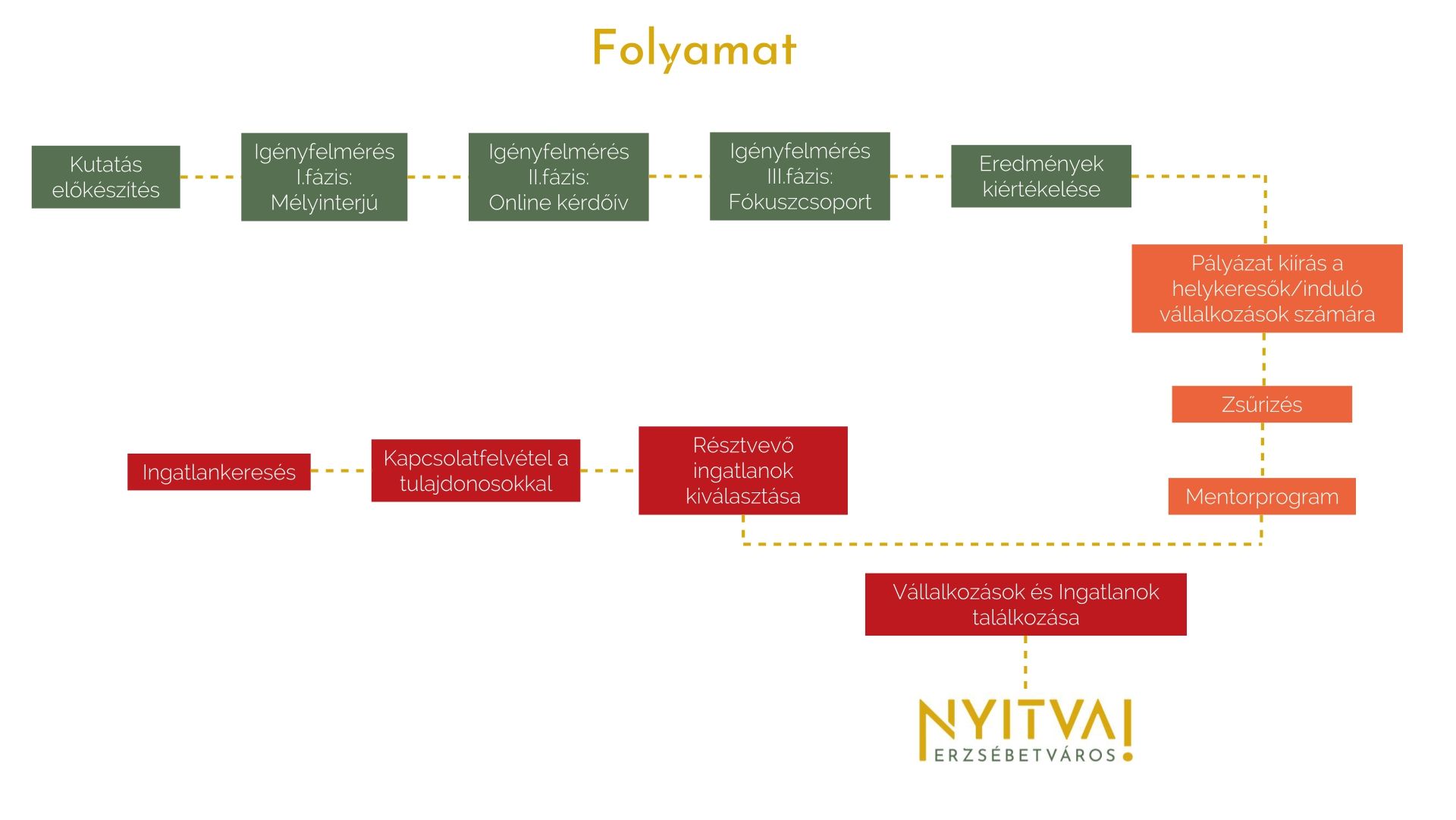
If the Nyitva! x Erzsébetváros meets your expectations, do you plan to involve more districts later?
T. Sz.: We have already been approached by several municipalities, and Erzsébetváros is also open to further cooperation. The vision of the whole project is to rent out municipal properties in the same way. The municipality could support businesses opening up in its own district by providing them with a mentoring program and a trial period of one and a half to two months. If this was implemented in just a few districts in Budapest, I would be very happy.
E. B.: The Nyitva! Festival responds to a broad issue with unlimited possibilities. It’s good to work in a site-specific way because you can get much closer to the local problem and not just scratch the surface. At the moment we are talking about a few shops, which in itself is not a big change. However, if the residents feel that their voice has been heard, their needs have been listened to, and the business owners they approached see that this can work in the long term, then hopefully, a change of attitude can start to take place.
Nyitva! Festivál | Web | Facebook









